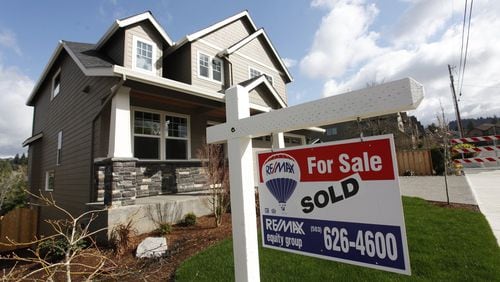The rise in metro Atlanta home prices is going to slow, according to a projection by a national home data company.
Average home prices in the region, which have been rising steadily since 2012, are decelerating and will climb just 3.8 percent by next April, according to the CoreLogic HPI Forecast.
That is slower than the 5.7 percent rise in Atlanta prices during the past year. It is also weaker than the increase predicted for the coming year for national prices.
But there is a slight deceleration nationally as well, CoreLogic said: U.S. home prices were up 6.9 percent during the last year. But average U.S. home price will climb 5.1 over the next year, CoreLogic predicted.
MILLENNIALS SAY THEY WANT TO BUY A HOME, BUT THE DOWNPAYMENT IS A PROBLEM
“In some metro areas, there has been a bidding frenzy as multiple contracts are placed on a single home,” said Frank Nothaft, the chief economist for CoreLogic.
In fact, that description applies to a number of neighborhoods within metro Atlanta. There are indeed places – many of them in the north side of the region – where there is jostling by potential buyers and bidding that pushes the price up to or even above the seller's asking price.
WITH 8 MILLION PEOPLE IN 2040, ATLANTA IS GOING TO NEED A LOT MORE INVESTMENT, FROM TRAINS TO HOMES
First-time buyers are crucial a healthy housing market, the people coming into the line who keep the line moving. And while the share of millennials who still rent has been larger than in previous generations, some research shows them willing to move to buying.
They want to, but they have trouble saving up for the downpayment. So price increases are a threat to the market's overall health, since they make housing less affordable for people who are already struggling to buy a home.
On the other hand, optimists say it may be that the hestitation of many millennials to buy may be better for the market in the long run.
"Many are living with their parents or continuing to rent for longer periods of time to save for a solid downpayment," said Ellen Hill, a realtor with Berkshire Hathaway HomeServices Georgia Properties. "Millennials who've waited are often better positioned financially to make a competitive offer when they decide to pull the trigger."
About the Author







